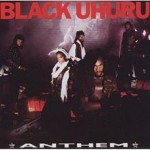THIS year marks 30 years since reggae music has a presence at the Grammy Awards, the music industry’s greatest showpiece.
Anthem by Black Uhuru won the inaugural award for Best Reggae Recording, as it was known in 1985.
The National Academy of Recording Arts and Sciences (NARAS), promoters of the Grammys, gave the go-ahead for establishing a reggae category in 1984. That is a decade after the music exploded internationally through acts like Bob Marley, Jimmy Cliff and Burning Spear.
Roger Steffens, then co-host of the Reggae Beat radio show in Los Angeles, was a key figure when NARAS sought to add another Grammy category.
“In 1984, president Mike Melvoin and co-chairman Bill Traut invited me to form and chair the first Reggae Grammy Screening Committee. Our duties were to make sure that all the recordings submitted to the category were actually reggae music and not R&B or soul or other categories,” Steffens recalled in an interview with the Sunday Observer.

The committee’s first meeting was on November 7 1984. Steffens and six colleagues selected 29 albums that comprised potential nominees, which were sent out to the NARAS.
Anthem, Jimmy Cliff’s Reggae Nights, Steppin’ Out by Steel Pulse, Peter Tosh’s Captured Live and King Yellowman by Yellowman were the first nominees based on votes from the NARAS members.
Black Uhuru (Michael Rose, Duckie Simpson and Puma Jones) won with what would be that lineup’s swan song.
Though the category has drawn controversy for seeming to favour persons associated with Marley or veterans like Cliff and Spear, Steffens said the committee were consistent in selections sent to NARAS.
“I think there were about seven members on the original committee. We always tried to have an odd number, to avoid having tied votes on whether to include a record or not,” he explained. “I don’t actually remember who else was there 31 years later but all were knowledgeable about the music and no one seemed to have any particular axe to grind or product to push. We did our very best to remain truly impartial.”
Steffens retired as chairman in 2011 after 27 years in the post. He reflected on 30 years of the reggae Grammy.

“Whether or not the Reggae category is a laughing stock is up for debate. Certainly, aside from some ego-gratification, a reggae Grammy has no discernible influence on sales or bookings,” he said. “It has nothing to do with sales, quality or chart success. Anything employing the name of the Wailers or Bob Marley seems like an automatic winner, no matter how mediocre the material.”
Marley’s son, Ziggy, won the 2015 Grammy for Best Reggae Album with Fly Rasta.
—By Howard Campbell


You must log in to post a comment.